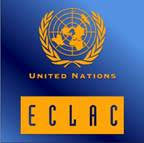Economic impact of novel coronavirus in the Caribbean


As governments across the Caribbean implement responses to prevent, , mitigate, and manage the spread of the novel coronavirus (COVID-19) and its consequences, the Economic Commission for Latin America and the Caribbean (ECLAC) subregional headquarters for the Caribbean, in collaboration with the United Nations system and key regional organizations, has embarked on a careful assessment to estimate the economic and social impact of the virus on the economies of the subregion. The study will serve as a resource to inform governments’ decision-making with respect to policy options to tackle the fall-out from the COVID-19 pandemic in the Caribbean.
COVID-19 is profoundly affecting the way of life of Caribbean people and will inevitably have a major impact on the economies of the subregion. With many Caribbean countries already shouldering an unsustainable public debt, the expected loss in in government revenue and anticipated increase in demand for social expenditure will need to be informed by robust data and solid analysis.
In response to this need, ECLAC Caribbean along with UN and other regional partners are conducting an analysis to ascertain the likely impact of the pandemic on the economies of the subregion as a whole. Entitled `Economic Impact of the 2019 Novel Coronavirus in the Caribbean’, the study will provide estimates of the economic cost of policy actions that have been taken in response to COVID-19.
The analysis will focus on select sectors, namely: health; tourism; agriculture, including fisheries and livestock; education; transportation, with particular attention given to aviation and shipping; and energy and oil and gas. For each sector, the impact assessment will present the socioeconomic costs related to loss of revenue, additional expenditures, temporary unemployment and the general welfare of households as a result of COVID-19.
The study will also anticipate the projected cost of further responses recommended by global and regional organizations as effective measures against the disease, thereby providing Caribbean decision-makers with a priority listing of additional cost-effective socioeconomic initiatives that the subregion could implement to deal with COVID-19.
The World Health Organization (WHO) declared COVID-19 a Public Health Emergency of International Concern on 30 January 2020, and on 11 March 2020 upgraded it to the level of a pandemic. Since then, to curtail the spread of the virus, and in an effort to prioritize national protection of public health during this global pandemic, a number of Caribbean countries have imposed varying degrees of travel restriction and border closure, including the prohibition of cruise ship docking; the cessation of flights by major airlines; restriction on or prohibition of public gathering; and the closure of schools, restaurants, and bars.
The study is expected to become publicly available in the coming weeks.
For further information, please contact Alexander Voccia at [email protected] or Denise Balgobin at [email protected]. Telephone: (868) 224-8067/224-8075.





